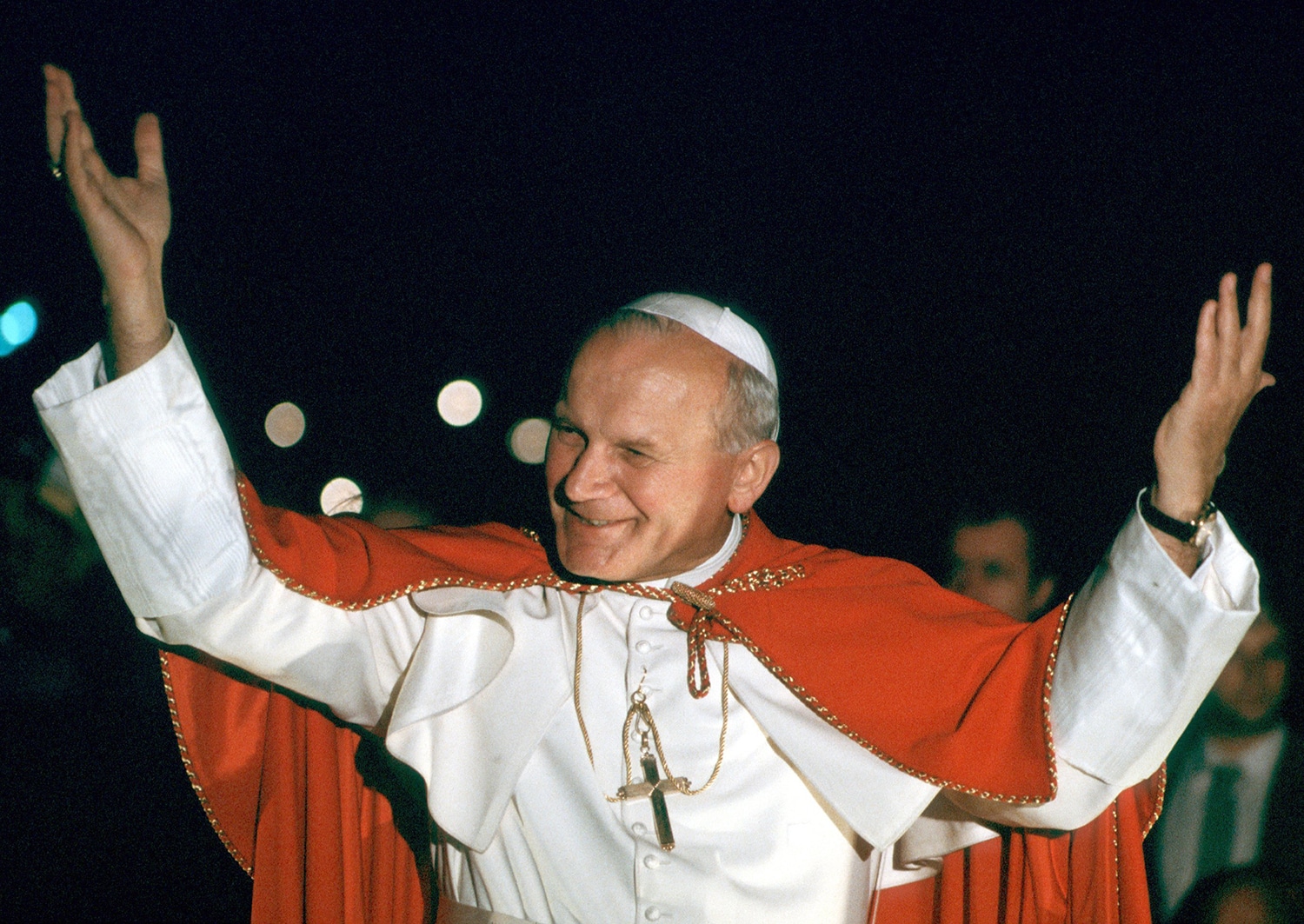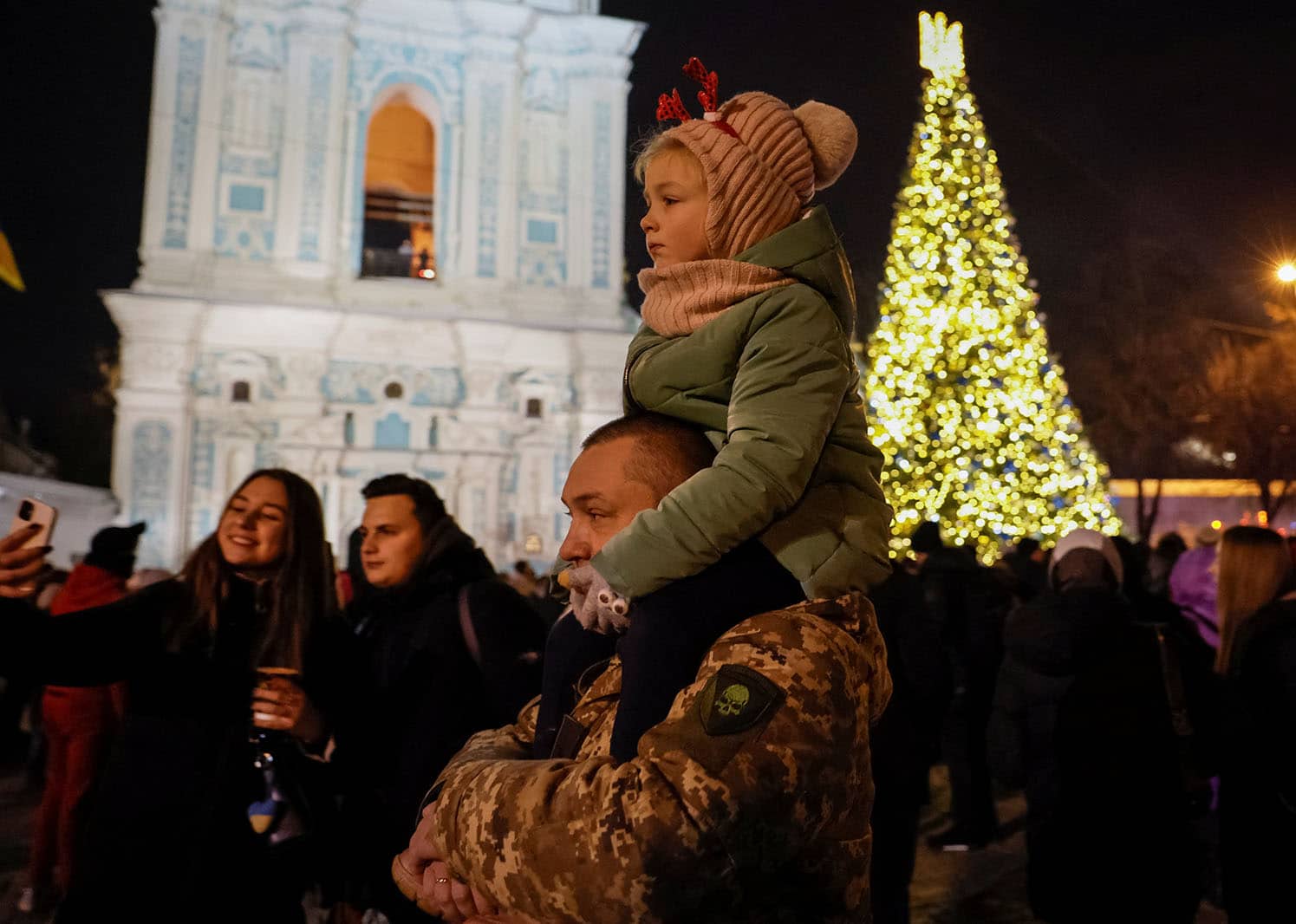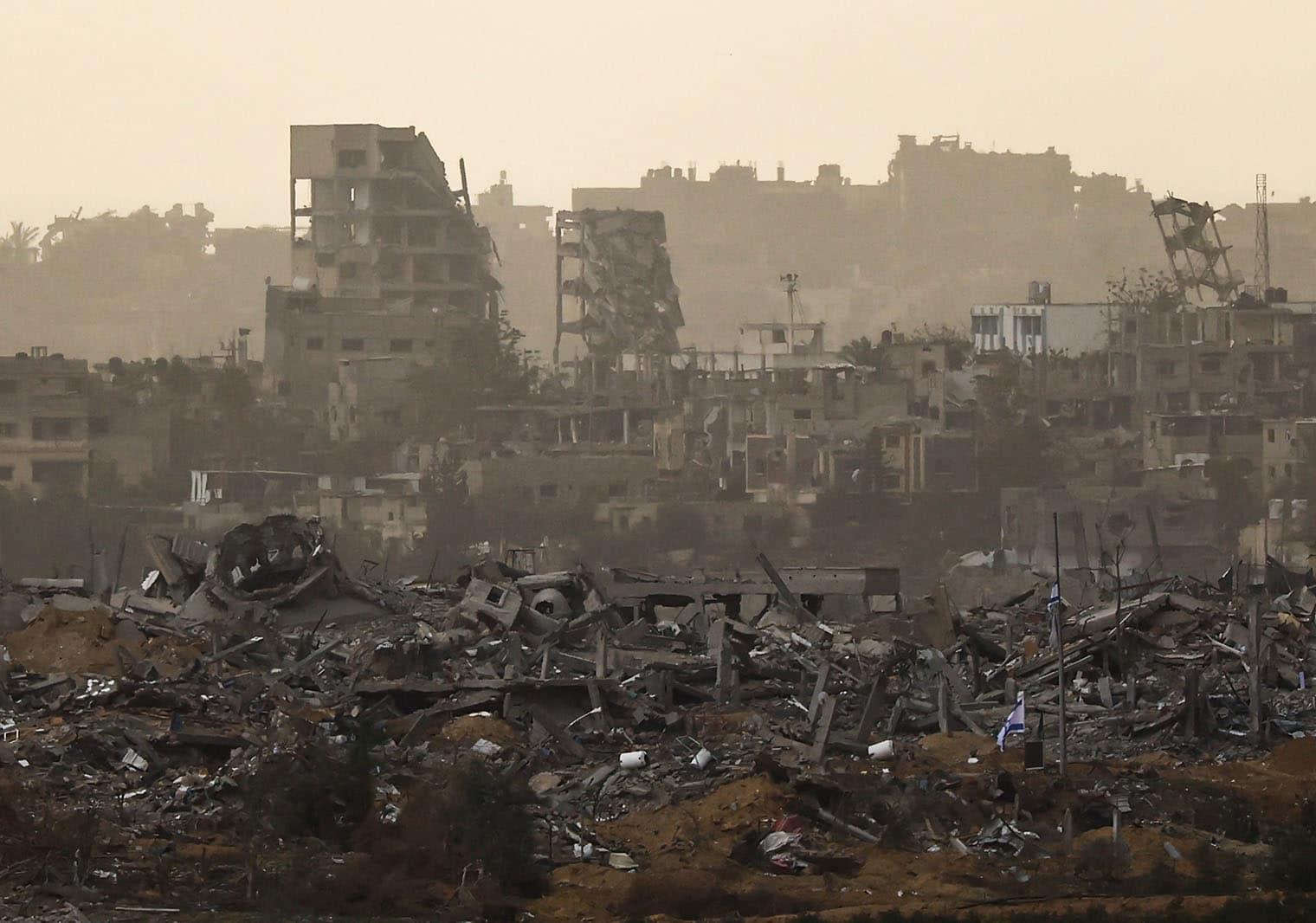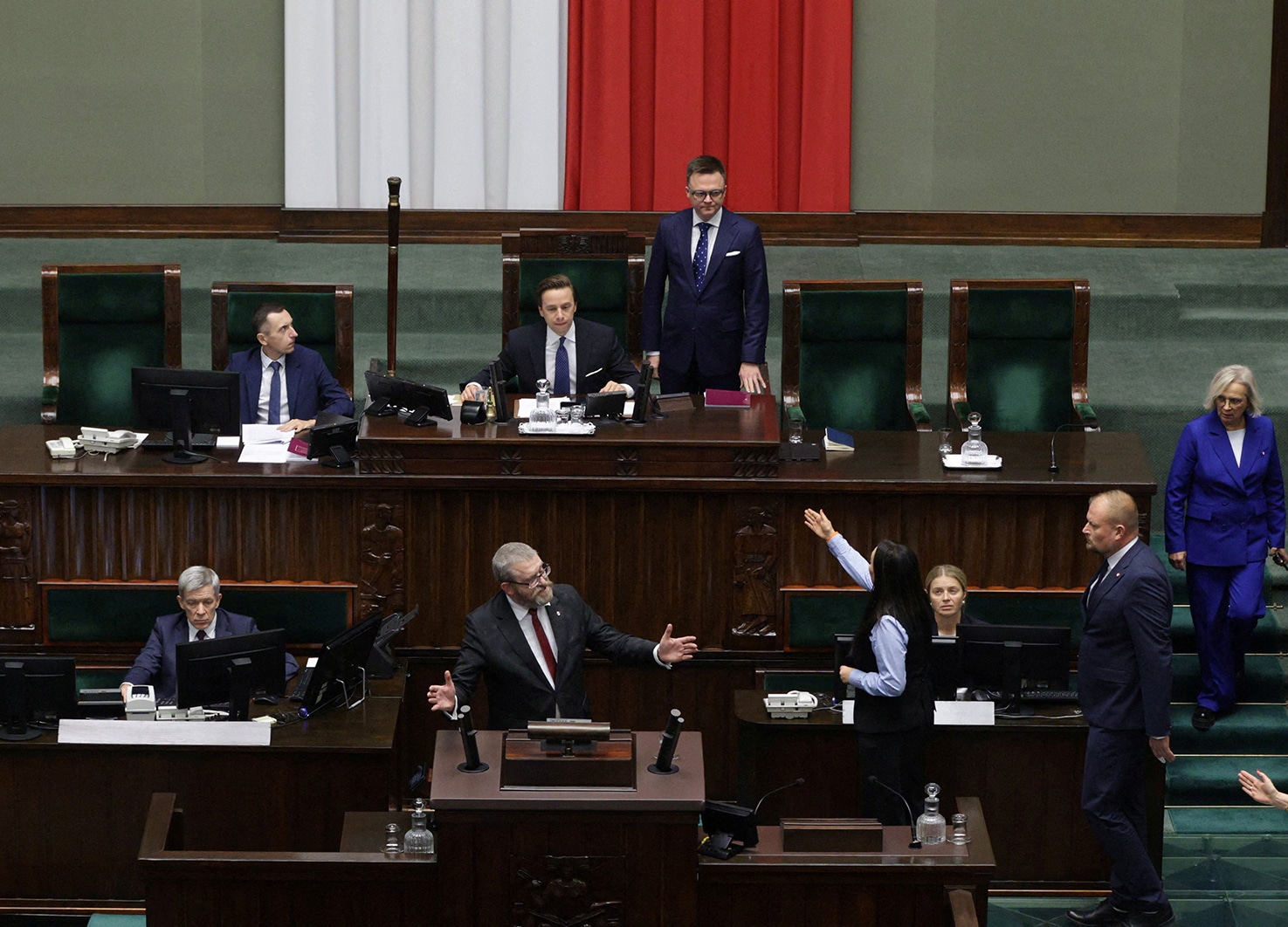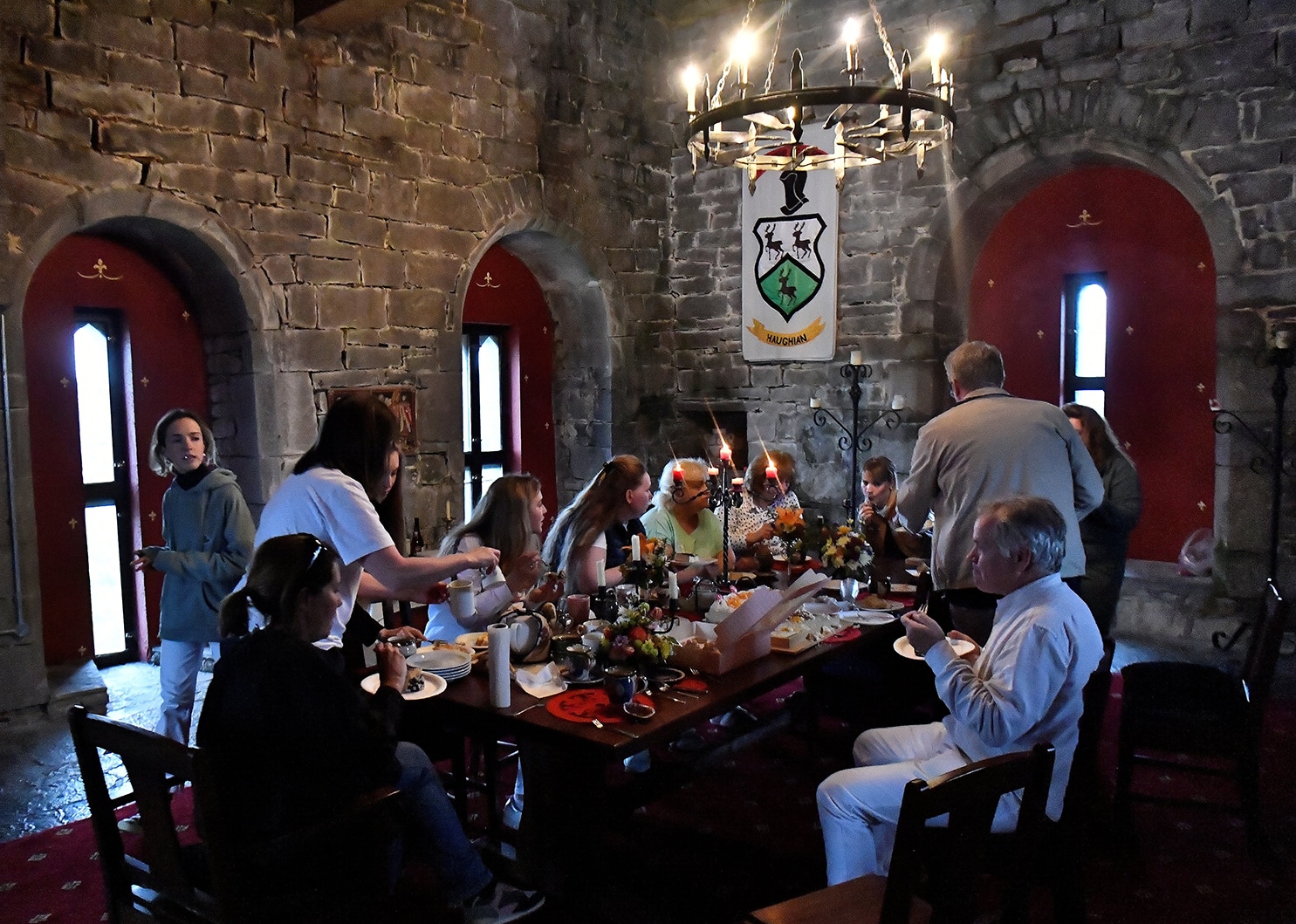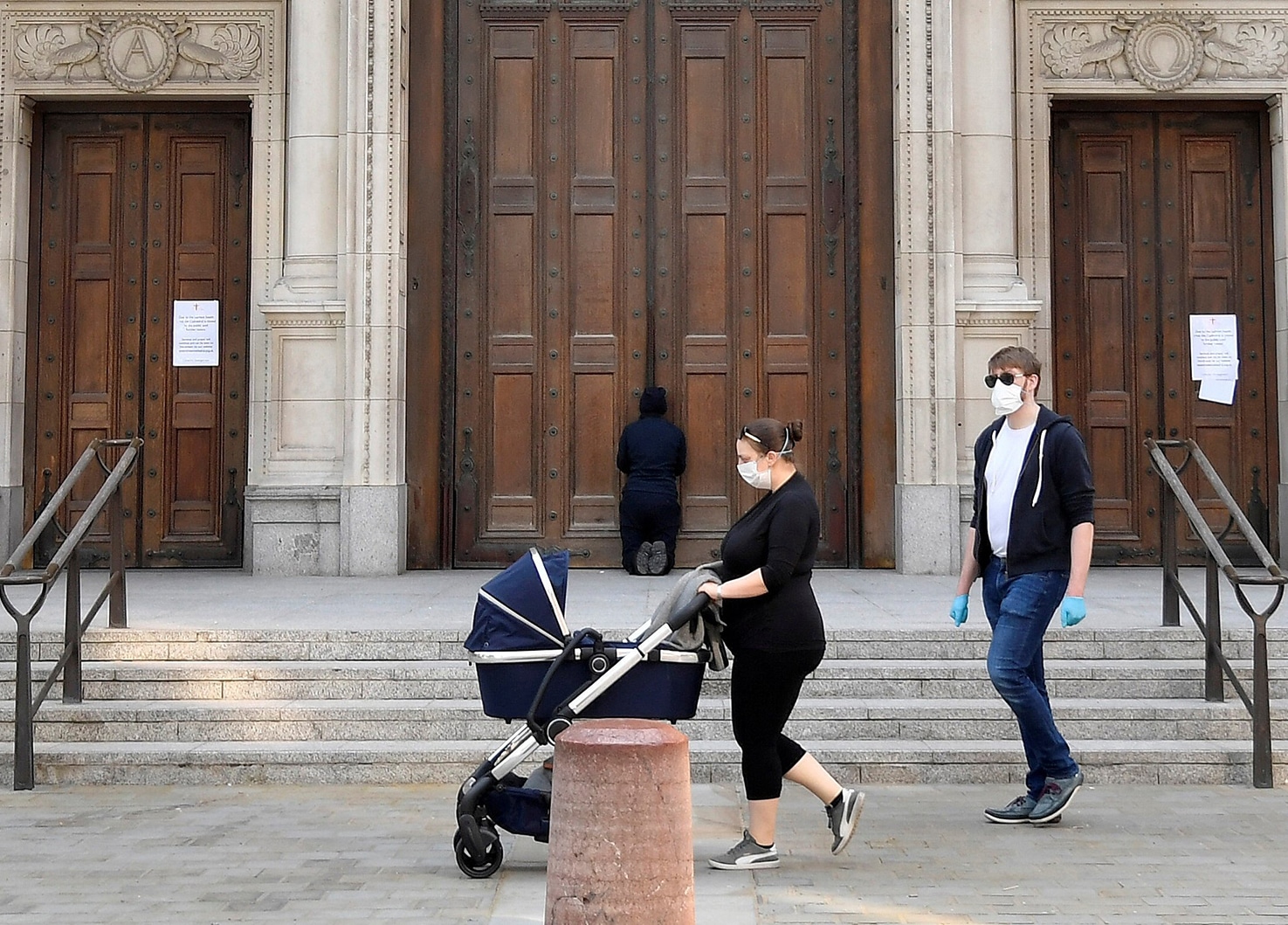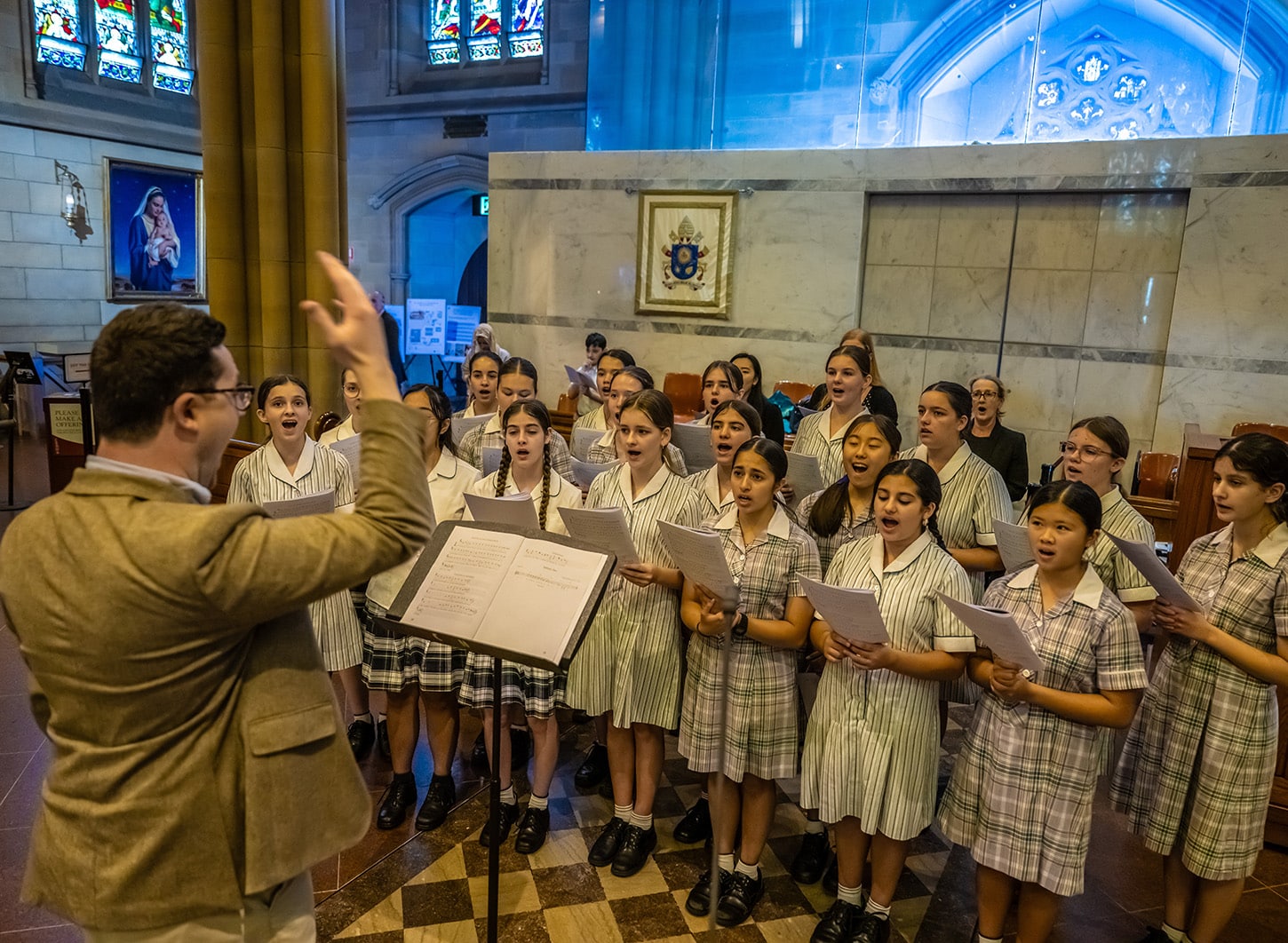(OSV News) — A Catholic church in Ukraine named for St. Nicholas marked its patron’s feast day by enshrining relics from St. John Paul II, who witnessed the power of faith over authoritarianism.
The Roman Catholic Church of St. Nicholas in Kyiv, part of the Diocese of Kyiv-Zhytomyr, celebrated a patronal Mass Dec. 6, after which the faithful had an opportunity to venerate the relics of the late pope.
For the occasion, an exhibition of works entitled “Strength to Endure” by Kyiv artist Svitlana Sevostyanchyk was displayed, with Sevostyanchyk donating one of them to the church.
“The painting depicts St. Nicholas and everything related to our soldiers, our defenders, and our will. These are different warriors. St. Nicholas is also in military uniform, because he is also a protector,” the artist told Ukrinform, the Ukrainian national news agency, which reported the relic enshrinement and liturgy Dec. 7.
The agency quoted St. Nicholas’ pastor, Oblate of Mary Immaculate Father Pavlo Vyshkovskyi, as saying the event was “a very important one for us.”
St. John Paul’s relics will be in St. Nicholas’ church on a permanent basis “accessible to everyone,” said Father Vyshkovskyi.
Church’s rich history
The priest recalled that St. John Paul was at St. Nicholas in June 2001 during his apostolic visit to Ukraine. The country’s president at the time, Leonid Kuchma, promised the pope that the church building, owned by the government, would be handed over to the parish for permanent use — a transfer that is still in process more than two decades later, and that speaks to the long struggle of the Catholic Church in Ukraine to emerge from decades of persecution under Soviet rule.
Modeled after Vienna’s Votivkirche, the neo-Gothic church — which was constructed over a ten-year span from 1899-1909 — is the second Catholic cathedral built in Kyiv. When St. Alexander Church could no longer accommodate a growing Catholic community, local Catholic leaders approached civil authorities in 1898 for the land to build a new church. To ensure their request would be approved, they promised to name it in honor of a visit to Kyiv by Russian tsar Nicholas II (who was ultimately assassinated along with his family in 1918 by the Bolsheviks).
Catholics worshiped at the church until 1936, with Soviet authorities enacting increasingly harsh repressive measures and finally closing the church in 1938. Under Soviet rule, the church was looted of its treasures — among them, icons and chalices — and used as a warehouse. Having suffered artillery damage during World War II, the church was renovated in the 1950s for use as a state archive. In the 1970s, Soviet authorities placed equipment on its roof to block signals from Western media such as BBC News and Radio Svoboda (Radio Liberty).
By 1978, the church had been given to the Kyiv House of Organ and Chamber Music, with a massive pipe organ — containing almost 4,000 pipes and 55 registers — installed for concert performances. The organ was destroyed in 2021 when a fire broke out in its electrical wiring.
Masses resume and celebrated daily
Only in January 1992 were Masses resumed at St. Nicholas; today, liturgies are celebrated at the church daily in Ukrainian, Polish, Spanish and Latin.
Since the full-scale war broke out in Ukraine with Russia’s invasion on Feb. 24, 2022, the Catholic Church is seen as a prominent supporter of Ukrainian freedom.
On Nov. 6, Ukraine’s Minister of Culture and Information Policy, Rostyslav Karandeev, met with local Catholic leaders to discuss the ongoing legal arrangements for “the church to be handed over to the (Catholic) community for free and permanent use.”
Currently, there is no such norm in Ukrainian law on culture and the only form of use — under which state property can be provided — is a lease.

